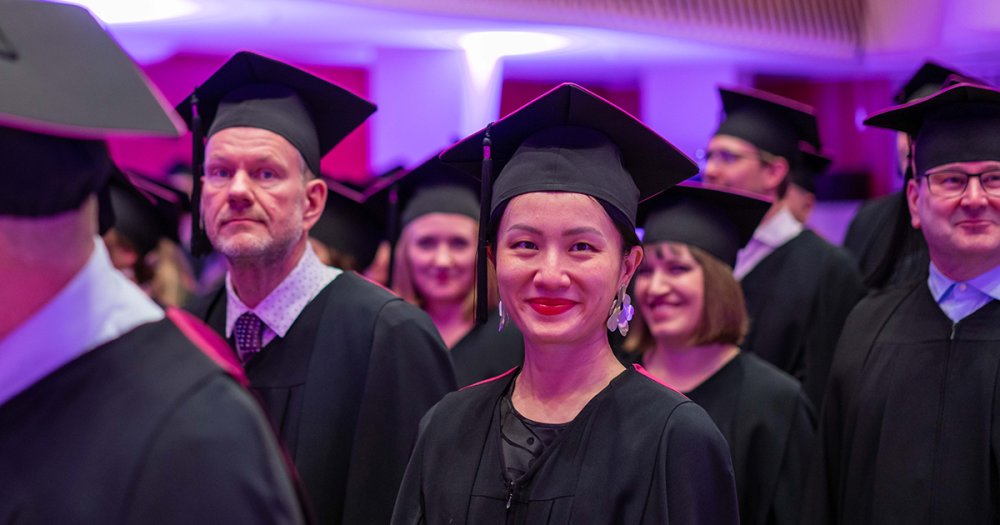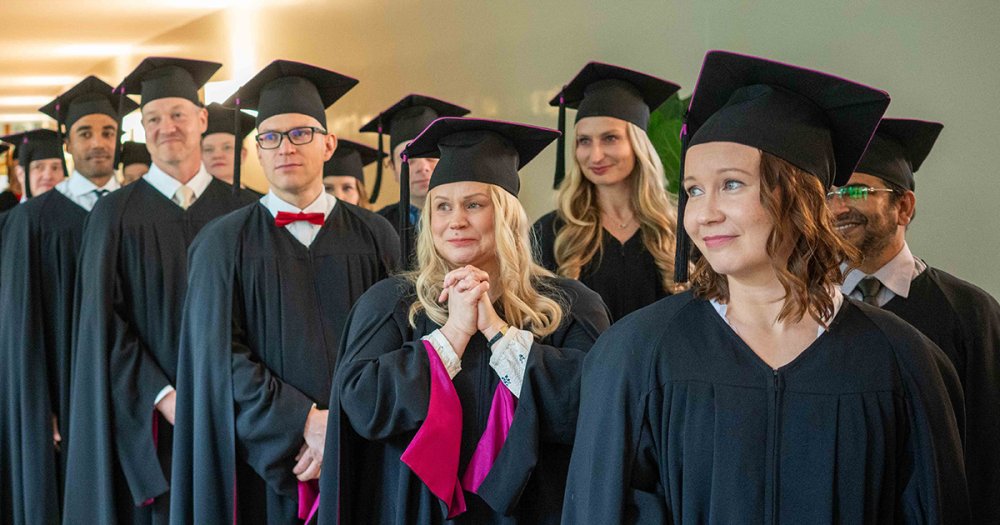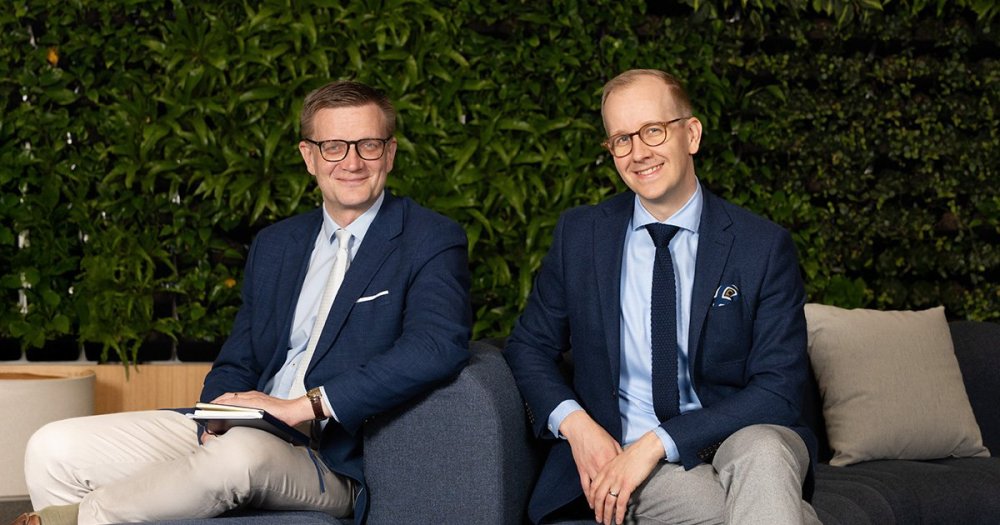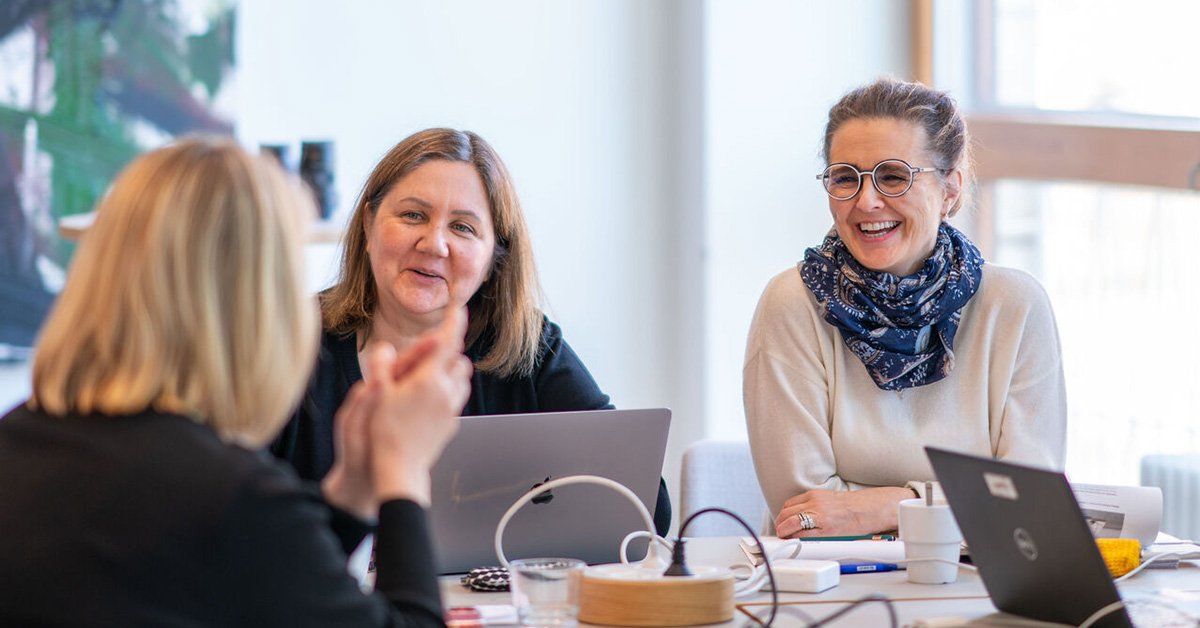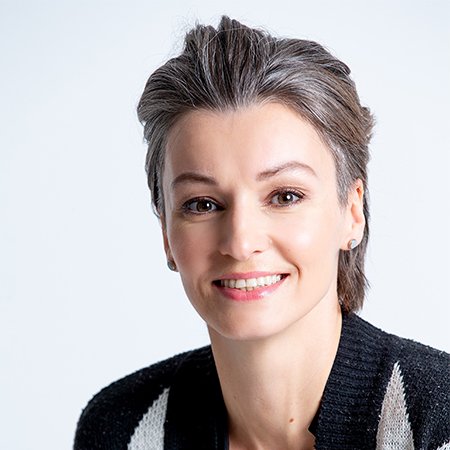 Aalto University’s Climate, Health and Cities program provided Estonian Parliament member and architect Yoko Alender with valuable, solution-oriented insights for addressing climate change in her policymaking. The multidisciplinary training broadened her perspective on the connections between climate, health, and the built environment, enabling her to apply new tools directly in her legislative work. Inspired by the program, Alender has even embarked on a PhD exploring sustainable architecture.
Aalto University’s Climate, Health and Cities program provided Estonian Parliament member and architect Yoko Alender with valuable, solution-oriented insights for addressing climate change in her policymaking. The multidisciplinary training broadened her perspective on the connections between climate, health, and the built environment, enabling her to apply new tools directly in her legislative work. Inspired by the program, Alender has even embarked on a PhD exploring sustainable architecture.
Architect and urban planner Yoko Alender has been a member of the Parliament of Estonia since 2015. Aalto University’s Climate, Health and Cities program gave her relevant insights for her work as a policy maker. The Climate, Health and Cities program is part of Aalto University’s growing offering in lifewide learning opportunities.
“The program speaks to a wide range of professionals. It shows how health, architecture and climate change are interlinked, and helps participants explore and identify solutions that support a more sustainable future,” Alender says.
The program speaks to a wide range of professionals. It shows how health, architecture and climate change are interlinked"
Sustainable architecture is one of Alender’s main fields of interest – and also the primary reason why she wanted to participate in the Climate, Health and Cities program.
“I attended a conference in Estonia about wooden architecture, and I heard one of the program’s instructors, Matti Kuittinen, speak there. His presentation alone assured me that I could look forward to a first-rate learning experience in this program,” remarks Alender, who has served in the Estonian Parliament’s Environmental Committee for the past four years.
A world scale perspective
Alender describes the Climate, Health and Cities program as a rewarding, thought-provoking experience.
“The program was very well organized, and the themes were expertly put together. Both of our instructors were highly knowledgeable, which made for a great study experience,” Alender mentions.
“Although I prefer attending training in person, the online format had its advantages. We had participants from all over the globe, which gave a world scale perspective to the severity of climate change. It was highly interesting to hear viewpoints from people from for example Japan and China,” she continues.
The program was very well organized, and the themes were expertly put together. Both of our instructors were highly knowledgeable, which made for a great study experience"
Alender says she was positively surprised when she understood that participants were expected to not only learn about climate change, but also propose solutions.
“In Estonia we are still at a point where we are discussing what will happen when climate change really hits, and not yet seeking solutions. Our professors at Aalto University’s Department of Architecture were a step ahead in their thinking. We gained tools to take action on climate change, which genuinely helped elevate my thinking,” she ponders.
Engaging people to mitigate climate change
Alender says that the instructors, Matti Kuittinen and Laura Arpiainen, presented many eye-opening facts during the program.
“I gained a lot of food for thought. Even in our part of the world, we already have mortality rates going up due to heat waves. Heat islands have caused an increase in insect borne diseases – and water management is a critical issue around the globe, both in terms of dealing with draughts and excess water in urban contexts,” Alender lists.
“I was quite shocked to hear that in Estonia, 80% of our residential square meters are in concrete blocks. I knew the number was high, but I had not imagined it to be that much. Estonians are currently facing what we call a renovation marathon, and it became clear to me that we need to focus on climate change and health aspects when we retrofit and update our living environment,” Alender adds.
As an individual assignment during the program, Alender came up with a plan for approaching and addressing Estonian people about adaptation policies to mitigate climate change.
“I explored how we could engage young climate activists in a positive way. My idea is to give them elderly contact people, who they could help in their daily lives and discuss climate change with. My hope is that our younger generation could help enlighten older Estonians on how climate change may impact their lives and wellbeing, and why we need to take determined action,” she explains.
Valuable insights and tools
Alender affirms that her study experience gave her beneficial insights and tools, which she has already put to use in her work in the Parliament of Estonia.
“I have just been working on our party’s election platform and putting together a proposal on environmental adaption issues that we need to focus on. The ideas I gained from the Aalto University program have been very helpful in this work. I am now better equipped to communicate to our voters and justify why we need to join climate adaption and urban design,” she underlines.
Recently, Alender also decided to go back to university.
“I started work on a Ph.D. degree about townhouse typology and its sustainability. I was lucky to get Matti Kuittinen to act as one of my supervisors. The Aalto University program had a big impact on my decision to pursue a doctorate. It sparked my interest in exploring the link between climate, health, and architecture,” she emphasizes.
The program provides a solution-focused outlook that is beneficial to anyone interested in climate change"
Alender says that she is pleased to recommend the Climate, Health and Cities program to others.
“The program provides a solution-focused outlook that is beneficial to anyone interested in climate change, its relationship to human health and the built environment. I warmly recommend participating,” Alender concludes.
Read more about the Certificate in Climate, Health and Cities program







